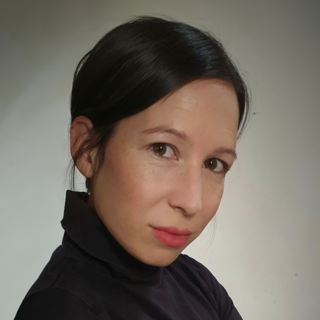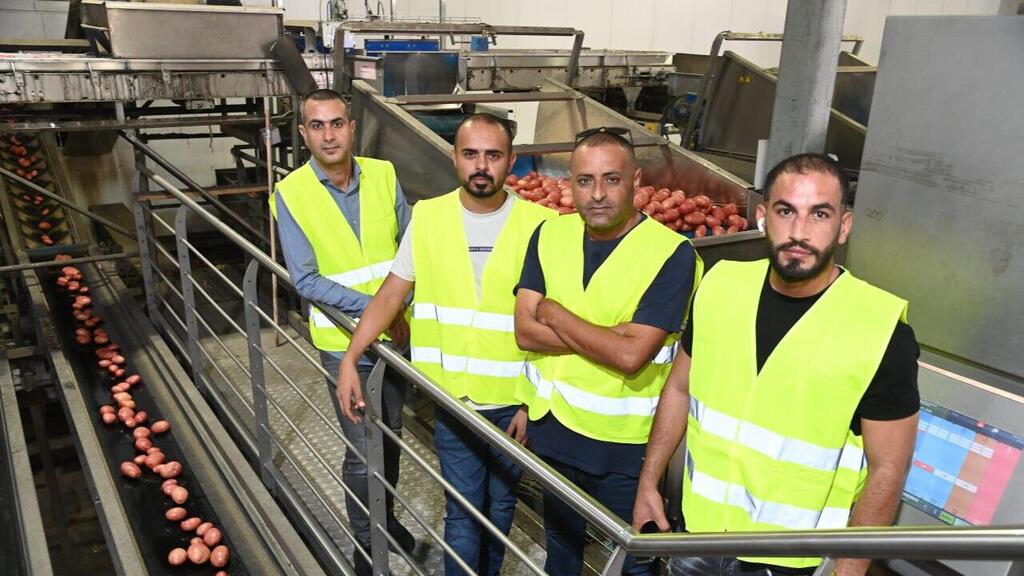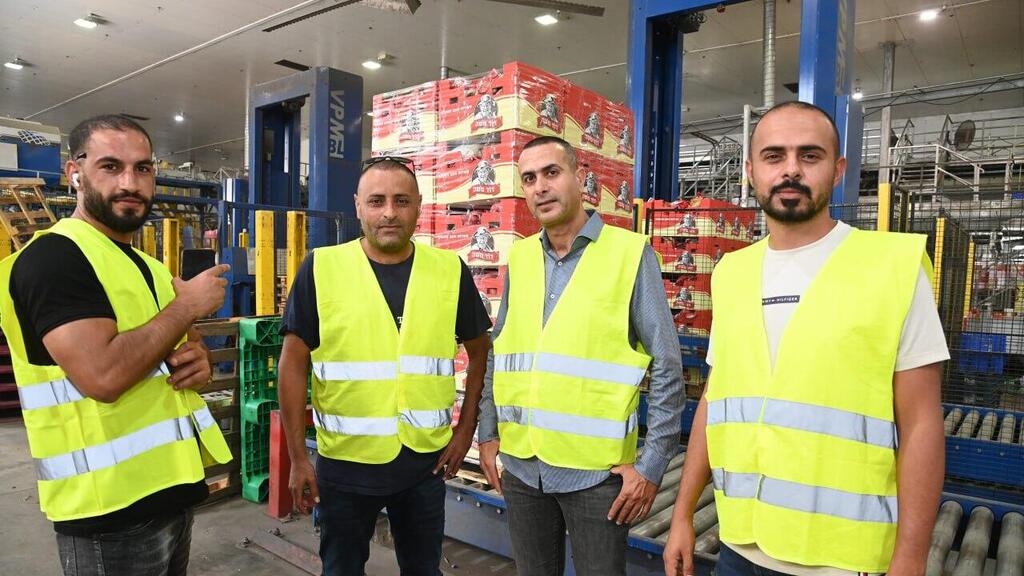Getting your Trinity Audio player ready...
At Kibbutz Magen, near the Gaza border, employees of the agricultural plant were among the first to return to work despite the ongoing war. Local farmers, desperate to save their crops, called for help, and the plant's workers—both Jewish and Bedouin—responded.
A group of 300 employees returned, even as Bedouin workers lacked secure shelters and Jewish workers had been evacuated from their homes. Now, as they begin to rebuild their lives, many continue to struggle with severe psychological distress, including sleeplessness and fear.
Farouk Alhajuj, 34, an educational psychologist from Rahat with the Tamar organization, manages mental health support for the plant's workers. He provides crucial assistance as many of the Bedouin workers, speaking about their emotions for the first time, navigate their fears and anxieties. "As a child, no one talked to me about feelings," said Alhajuj. "This latest war has brought out emotions in both young and old."
The workers have shared their fears of coming to work, leaving their families behind and making the 40-minute drive to the plant, only to experience the war’s terror up close. In the early days of the war, Bedouin workers arrived to find many military personnel at the plant. Some had served in the military, but others hadn’t, and they all felt like they were entering a war zone.
One worker shared that after years of working alongside his Jewish colleagues, he suddenly didn’t know what to say to them in this difficult time. They hear the rockets falling and the war raging in Gaza, and some have announced they won't be coming to work.
The Ajik Institute, which supports the plant's workers, noted that the Negev region, especially among Bedouin communities, has suffered significant damage since October 7. "We’ve been focused on resilience, addressing the lack of shelter from rockets and other challenges," the institute said. The project supporting the plant’s workers was initiated by the Jewish Federation of New York (UJA).
"The stress-relief workshops and resilience activities we initiated require them to pause and process their wide range of feelings, both among themselves and in relation to their colleagues. This is the essence of the shared life we speak about daily at Ajik." The project supporting the plant’s workers was initiated by the Jewish Federation of New York (UJA).
Yacham plants, which market agricultural produce from the Eshkol Regional Council, rely on these workers, who are considered essential. But the events of October 7 caught everyone unprepared—one employee was kidnapped, and another killed. Despite these challenges, Sharif Alziadna, 47, from Rahat, continues to manage the carrot department. "We want to prove that they can’t break us. We must keep working," he said.
"I was afraid too. We took turns managing shifts, and I chose to arrive early in the morning to make sure everything was okay. Even now, we hear the sounds of war—gunfire and more. We hold a weekly meeting to discuss what’s happening with the workers, telling them there’s no need to be afraid. Slowly, people have calmed down.
"We still meet with Farouk, and he helps people cope with more than just the war. The hour spent with him feels like five minutes. Some think going to psychological counseling makes you a fool; they don’t understand it like we do. Most of the workers are from Bedouin communities. Honestly, I haven’t managed to get everyone to talk with Farouk. The workers from Rahat understand the need more, including the younger ones. But I sit and talk with the workers."
Farouk, who also works at a resilience center in Rahat, explained that his presence at the plant helps strengthen the workers' resilience. "The plant in Magen is a unique story because the workers felt a deep need to return, knowing they supply the country’s agricultural produce. I haven’t seen such commitment elsewhere," he said.
"As a Bedouin facilitator, I had concerns about coming into such a sensitive situation and talking with Jewish workers about the situation. I worried they wouldn’t accept it. But I am a resident of this country, and I experienced some of what they did. There were rocket attacks in my neighborhood too. The rockets from Gaza don’t distinguish between Jews and Arabs. We will overcome this complex situation together. When they heard this, they accepted me as a facilitator. I had tears in my eyes when I heard the workers' stories."
Kamel Alhozail, 30, from Rahat, a work coordinator at the plant, added that the psychological support provided by Farouk has had a positive impact. "These meetings show the workers that someone cares. In our daily lives, we don’t often talk about psychological treatment, but I believe anyone who feels troubled should speak up, otherwise, these feelings will stay bottled up," Alhozail said.





